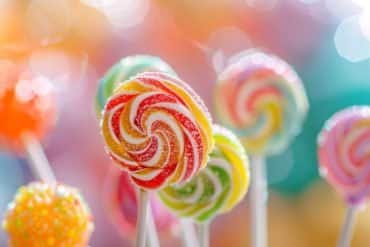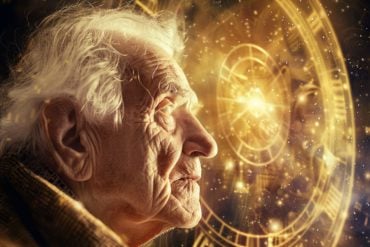Summary: Researchers question why many of us are unable to live without our daily cup of coffee. According to a new study, bitter tastes are a natural warning system to protect the body from harmful substances, yet people with heightened ability to detect the bitter taste of coffee learn to associate it with positive things and tend to drink more than those with lower sensitivity. Researchers say this sensitivity is caused by genetic variants.
Source: Northwestern University.
Why do we like the bitter taste of coffee? Bitterness evolved as a natural warning system to protect the body from harmful substances. By evolutionary logic, we should want to spit it out.
But, it turns out, the more sensitive people are to the bitter taste of caffeine, the more coffee they drink, reports a new study from Northwestern Medicine and QIMR Berghofer Medical Research Institute in Australia. The sensitivity is caused by a genetic variant.
“You’d expect that people who are particularly sensitive to the bitter taste of caffeine would drink less coffee,” said Marilyn Cornelis, assistant professor of preventive medicine at Northwestern University Feinberg School of Medicine. “The opposite results of our study suggest coffee consumers acquire a taste or an ability to detect caffeine due to the learned positive reinforcement (i.e. stimulation) elicited by caffeine.”
In other words, people who have a heightened ability to taste coffee’s bitterness — and particularly the distinct bitter flavor of caffeine — learn to associate “good things with it,” Cornelis said.
Thus, a bigger tab at Starbucks.
The study will be published Nov. 15 in Scientific Reports.
In this study population, people who were more sensitive to caffeine and were drinking a lot of coffee consumed low amounts of tea. But that could just be because they were too busy drinking coffee, Cornelis noted.
The study also found people sensitive to the bitter flavors of quinine and of PROP, a synthetic taste related to the compounds in cruciferous vegetables, avoided coffee. For alcohol, a higher sensitivity to the bitterness of PROP resulted in lower alcohol consumption, particularly of red wine.

“The findings suggest our perception of bitter tastes, informed by our genetics, contributes to the preference for coffee, tea and alcohol,” Cornelis said.
For the study, scientists applied Mendelian randomization, a technique commonly used in disease epidemiology, to test the causal relationship between bitter taste and beverage consumption in more than 400,000 men and women in the United Kingdom. The genetic variants linked to caffeine, quinine and PROP perception were previously identified through genome-wide analysis of solution taste-ratings collected from Australian twins. These genetic variants were then tested for associations with self-reported consumption of coffee, tea and alcohol in the current study.
“Taste has been studied for a long time, but we don’t know the full mechanics of it,” Cornelis said. “Taste is one of the senses. We want to understand it from a biological standpoint.”
Source: Marla Paul – Northwestern University
Publisher: Organized by NeuroscienceNews.com.
Image Source: NeuroscienceNews.com image is in the public domain.
Original Research: Open access research for “Understanding the role of bitter taste perception in coffee, tea and alcohol consumption through Mendelian randomization” by Jue-Sheng Ong, Daniel Liang-Dar Hwang, Victor W. Zhong, Jiyuan An, Puya Gharahkhani, Paul A. S. Breslin, Margaret J. Wright, Deborah A. Lawlor, John Whitfield, Stuart MacGregor, Nicholas G. Martin & Marilyn C. Cornelis in Scientific Reports. Published November 15 2018.
doi:10.1038/s41598-018-34713-z
[cbtabs][cbtab title=”MLA”]Northwestern University”Why We Shouldn’t Like Coffee, But We Do.” NeuroscienceNews. NeuroscienceNews, 15 November 2018.
<https://neurosciencenews.com/coffee-bitter-taste-10204/>.[/cbtab][cbtab title=”APA”]Northwestern University(2018, November 15). Why We Shouldn’t Like Coffee, But We Do. NeuroscienceNews. Retrieved November 15, 2018 from https://neurosciencenews.com/coffee-bitter-taste-10204/[/cbtab][cbtab title=”Chicago”]Northwestern University”Why We Shouldn’t Like Coffee, But We Do.” https://neurosciencenews.com/coffee-bitter-taste-10204/ (accessed November 15, 2018).[/cbtab][/cbtabs]
Abstract
Understanding the role of bitter taste perception in coffee, tea and alcohol consumption through Mendelian randomization
Consumption of coffee, tea and alcohol might be shaped by individual differences in bitter taste perception but inconsistent observational findings provide little insight regarding causality. We conducted Mendelian randomization analyses using genetic variants associated with the perception of bitter substances (rs1726866 for propylthiouracil [PROP], rs10772420 for quinine and rs2597979 for caffeine) to evaluate the intake of coffee, tea and alcohol among up to 438,870 UK Biobank participants. A standard deviation (SD) higher in genetically predicted bitterness of caffeine was associated with increased coffee intake (0.146 [95%CI: 0.103, 0.189] cups/day), whereas a SD higher in those of PROP and quinine was associated with decreased coffee intake (−0.021 [−0.031, −0.011] and −0.081 [−0.108, −0.054] cups/day respectively). Higher caffeine perception was also associated with increased risk of being a heavy (>4 cups/day) coffee drinker (OR 1.207 [1.126, 1.294]). Opposite pattern of associations was observed for tea possibly due to the inverse relationship between both beverages. Alcohol intake was only negatively associated with PROP perception (−0.141 [−1.88, −0.94] times/month per SD increase in PROP bitterness). Our results reveal that bitter perception is causally associated with intake of coffee, tea and alcohol, suggesting a role of bitter taste in the development of bitter beverage consumption.







